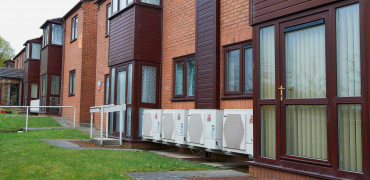In the midst of a rapidly changing environmental landscape, the push towards sustainability and reduced emissions has become a focal point for both the Conservative and Labour parties in the UK.
In this article I delve into two key aspects: the significance of Ultra Low Emission Zones (ULEZ) and their role in the Uxbridge by-election results, and the upcoming challenges in achieving ambitious net zero targets.
From the expansion of ULEZ zones and the ensuing political repercussions to the hurdles of transitioning to cleaner energy sources, this analysis explores the intertwining worlds of environmental policy and practical implementation.
Despite public support, there has been vocal opposition from sensationalist tabloid commentators
What is ULEZ?
ULEZ stands for "Ultra Low Emission Zone." It is an area within a city, typically a densely populated one, where certain vehicles are required to meet strict emissions standards in order to enter and operate.
The primary goal of a ULEZ is to improve air quality and reduce pollution by encouraging the use of vehicles that emit fewer pollutants, particularly nitrogen oxides (NOx) and particulate matter.
Vehicles that do not meet the required emissions standards are subject to a fee or penalty for entering the ULEZ. These fees are designed to discourage the use of older, more polluting vehicles and encourage the adoption of cleaner transportation options such as electric vehicles or vehicles with advanced emissions control systems.
ULEZs are often implemented in areas where air quality is a major concern, and they play a role in efforts to combat climate change and improve public health by reducing the harmful effects of air pollution.
The specific requirements, fee structures, and enforcement mechanisms can vary from city to city and country to country.
Ditching green plans
So why has the Uxbridge result been seen as a green light to abandon green plans?
In the days following the unsuccessful attempt by the Labour party to win the Uxbridge and South Ruislip seats from the Tories in the recent by-election, both parties have been echoing a similar sentiment: the extension of London's Ultra Low Emissions Zone (ULEZ) into the outer boroughs by Sadiq Khan is being held responsible.
What can be confirmed is that the Conservative campaign heavily emphasised opposition to this proposition. Campaign materials portrayed the now-MP Steve Tuckwell not as a Conservative representative, but as the "anti-ULEZ candidate." Several voters actually attended solely to express their dissent against this proposal.
It's worth noting that ULEZ was initially introduced during the tenure of then-Mayor Boris Johnson, even though it was later implemented in central London under the administration of his successor, Sadiq Khan.
General support
As per this policy, drivers of vehicles that exceed specific pollution thresholds – a minority of inner London's daily traffic, and a higher percentage of vans – incur a charge of £12.50 for each instance of driving within the designated zone.
Despite substantial evidence demonstrating the effectiveness of this scheme and the fact that air pollution levels consistently surpass the guidelines set by the World Health Organisation throughout Greater London, there is still criticism of Mayor Khan and his plans to expand these regulations to encompass the entire city next month.
Opinion polls consistently indicate that a majority of London residents support this measure, and even in the more car-dependent outer boroughs, opinions are divided fairly evenly. Nevertheless, there has been vocal opposition from the automobile industry and sensationalist tabloid commentators.
It has come to light that key advisors to Keir Starmer are deeply frustrated with this life-saving policy, and Khan was reportedly barred from visiting Uxbridge in the lead-up to the election. Danny Beales, the Labour candidate, openly expressed his disapproval of this initiative.
In actuality, the majority of the available data – including the observations from the by-election itself – lend weight to Khan's decision to proceed with this course of action.
Anticipated struggles
Both the Conservative and Labour parties have committed to ambitious net zero targets. These objectives entail navigating substantial transformations in transportation and infrastructure to revolutionise industries and promote cleanliness. This signifies the presence of significant challenges on the horizon.
For instance, replacing conventional gas boilers with electric heat pumps in millions of residences stands as a prerequisite for achieving net zero goals. However, in the absence of supplementary government incentives, this endeavour can translate to significant financial burdens for consumers.
Moreover, the UK is merely seven years away from enforcing a ban on the sale of new petrol and diesel cars. This initiative aims to stimulate the transition to electric vehicles, which boast lower operational expenses but come with notably higher initial costs.
The concerted effort to achieve carbon-neutral electricity by the early 2030s necessitates a substantial expansion of electricity grid infrastructure, encompassing elements like pylons and cables. Seasoned Conservative MP Bernard Jenkin previously conveyed to POLITICO that no issue had ignited as much fervour in his constituency over the past three decades as the proposal to erect more pylons across the countryside.
In summary
In conclusion, both the Conservative and Labour parties have embraced ambitious net zero targets, setting the stage for significant changes in transportation, infrastructure, and industry.
As the journey to cleaner energy intensifies, challenges emerge in the form of replacing gas boilers with electric heat pumps, transitioning to electric vehicles despite upfront costs, and expanding electricity grid infrastructure.
While these battles lie ahead, the commitment to achieving a carbon-neutral future remains a pivotal pursuit for the UK, demanding collaborative efforts and innovative solutions to create a more sustainable and environmentally conscious society.
Joe Bradbury Digital Editor of Housing Association magazine




